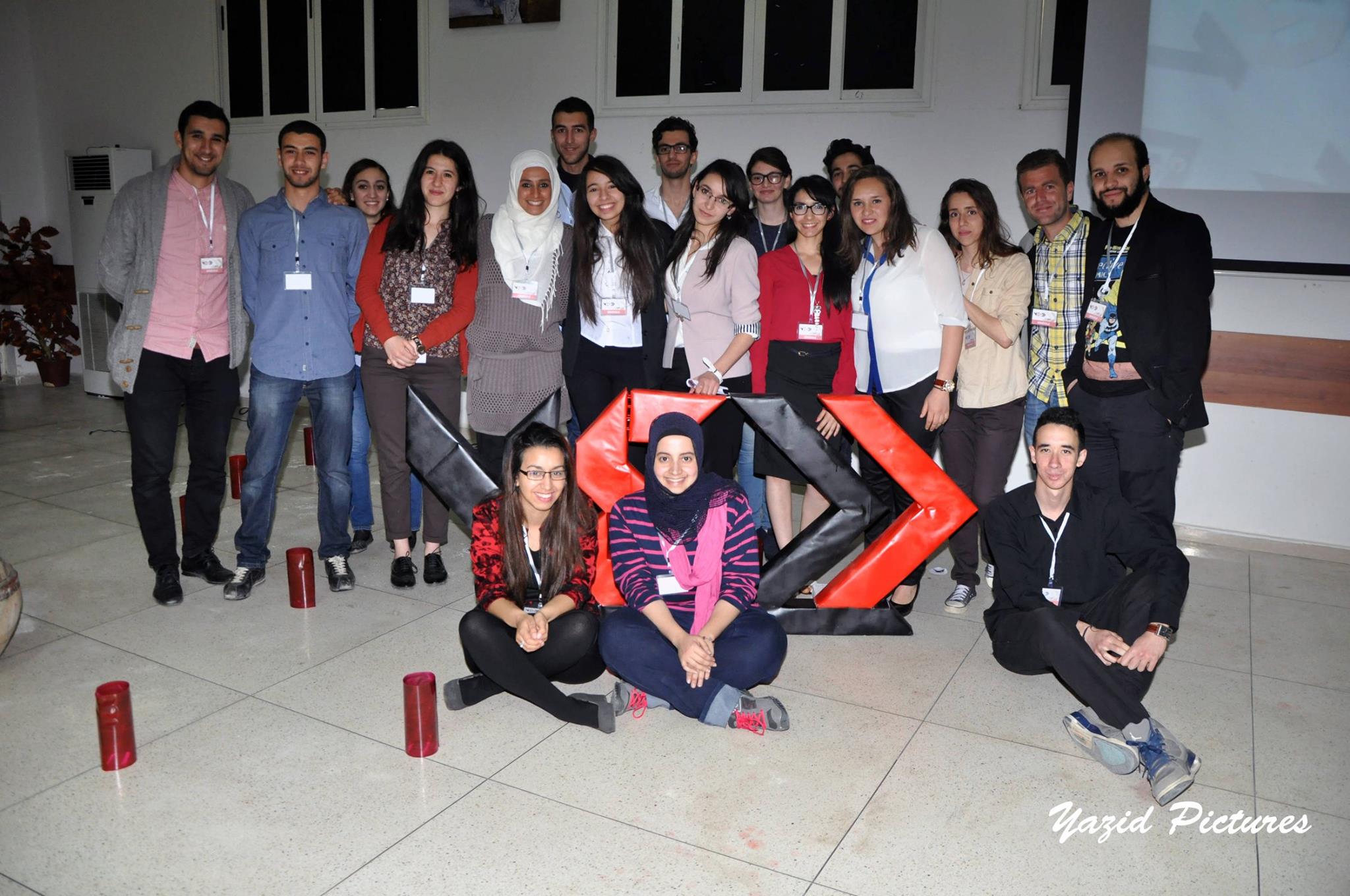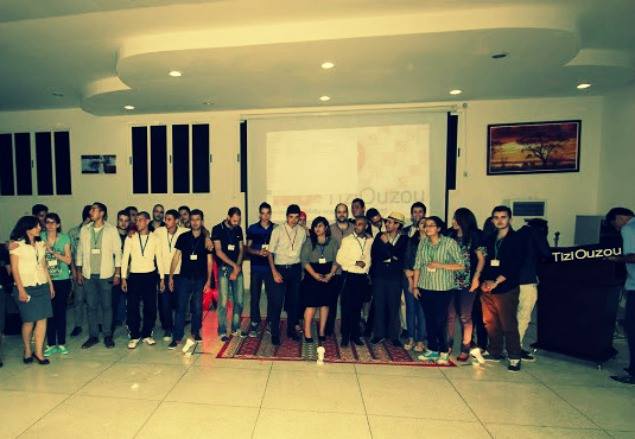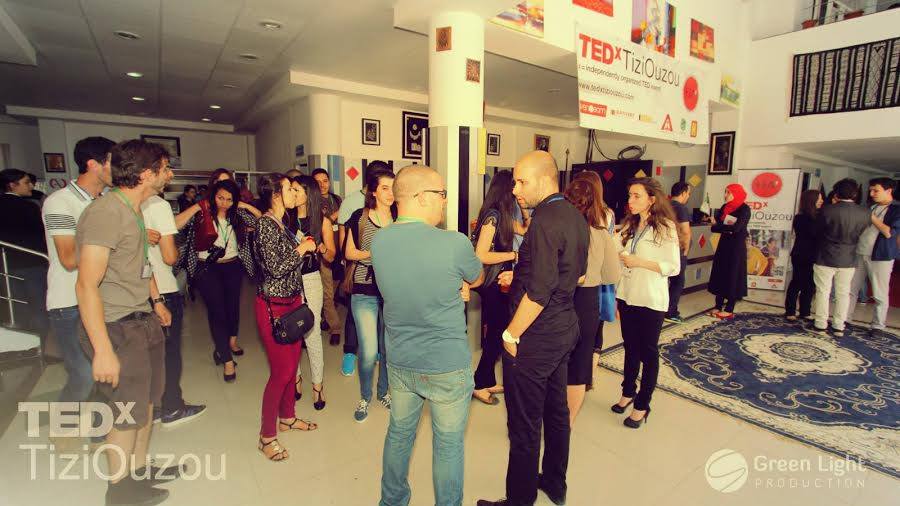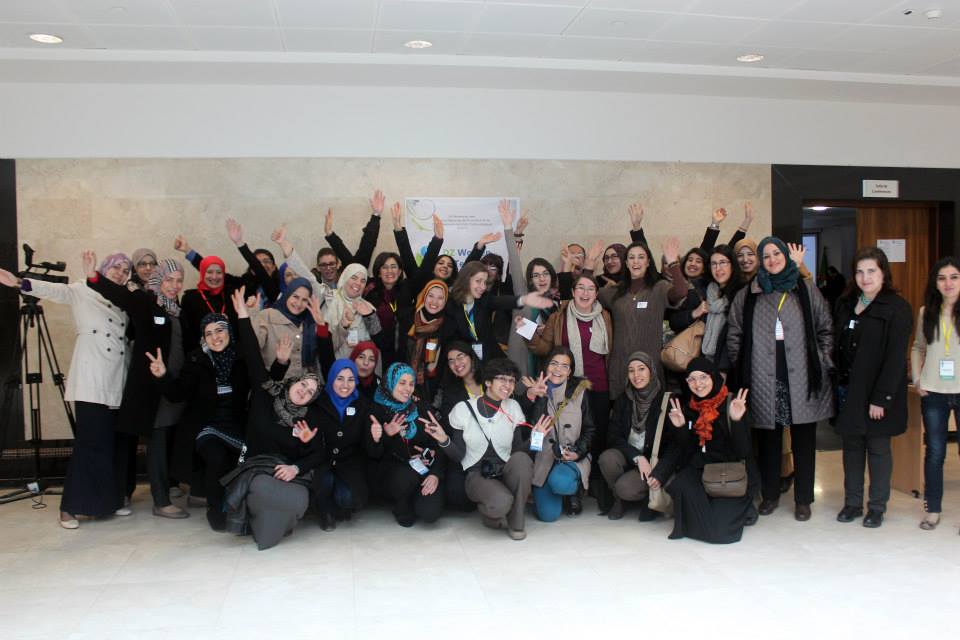Context-aware framework to support situation-awareness for disaster management.
Authors: Aicha Aid and Idir Rassoul
International Journal of Ad Hoc and Ubiquitous Computing
When a crisis event occurs, there is a strong need for any involved decision maker to gather in short time frames
relevant situational information from different available data sources, to better understand the caused disruptions.
Technological devices proliferation and ICT efficiency in timely information sharing did not leave a choice to responders
only to adopt them, supporting their operations. This paper proposes a framework that aims to solve challenges brought by
this new paradigm of information sharing. Based on service-oriented architecture, our framework relies on web service standard
for Devices to make pervasive situation-awareness (SA) environment that allows seamless integration of heterogeneous devices.
It also provides solutions to filter in real time received information by taking into account the decision maker's context.
This context-aware mechanism plays an important role in making the data source intelligent that delivers personalized view of the situation, relevant to decision maker current needs.
Full Text
Transformer-Based Question Answering Model for the Biomedical Domain.
Authors: Ahcene Haddouche, Ikram Rabia, and Aicha Aid
The 5th IEEE International Conference on Pattern Analysis and Intelligent Systems
Motivation: Question Answering (QA) is a highly focused topic in the field of Natural Language Processing (NLP). Recent progress in neural network models and the availability of large datasets like SQuAD have played a significant role in improving performance in open domains. However, there remains a need to further effectively implement these systems in more specific domains, especially in the biomedical field, to help medical practitioners provide accurate solutions for inquiries related to medicine and healthcare, including specific subjects such as the COVID-19 disease. Fortunately, recent models, such as transformers, have opened up avenues and modern techniques for developing accurate systems.
Aims: In this work, we aim to leverage transformer models and Transfer Learning to effectively train models in the biomedical domain. By taking a pre-trained model for Question Answering tasks and further fine-tuning it on specific domains, we enhance the system's performance in the biomedical domain. Our ultimate goal is to develop a QA model specifically tailored for COVID-19 QA.
Results: We have trained BERT and RoBERTa models on the COVID-QA dataset and achieved competitive results on COVID-19 QA. Our RoBERTa model achieved an Exact Match (EM)/F1 score of 0.38/0.64, respectively, on COVID-QA, indicating successful performance in COVID-19 QA.
Full Text
Enhanced K-Nearest Neighbors for Smart Cardiovascular Disease Prediction in IoT System.
Authors: Farida Brahimi, Aicha Aid, Mourad Amad, Abdelghani Mehennaoui, and Abderahmane Baadache
Revue d'Intelligence Artificielle
Cardiovascular disease (CVD) is becoming more prevalent as a health issue and ranks as a top cause of mortality globally. Effectively identifying CVD is frequently a challenging process, given that minor errors can result in significant consequences. To address this challenge, healthcare organizations have recently embraced Internet of Things (IoT) to collect patients' vital signs using wearable sensors, these data are then stored and transmitted to machine learning (ML) based prediction systems. Among the various ML algorithms, the K-Nearest Neighbors (K-NN) algorithm stands out for its simplicity and effectiveness in CVD prediction. However, its reliance on majority voting can lead to classification errors, especially when test vectors are closer to minority class neighbors. To address this limitation, we propose the Enhanced K-Nearest Neighbors (E-KNN) algorithm, specifically designed to refine classification accuracy by incorporating a weighted distance measure that considers both neighbor proximity and class distributions. The E-KNN model has undergone comprehensive testing in comparison to standard ML methods. The experimental findings demonstrate that the introduced model surpasses current methodologies based on performance assessment indicators, recording a 91.43% notable accuracy level. To leverage the E-KNN algorithm, we have developed an IoT platform that gathers crucial patient data and transmits it to the E-KNN based model.
Full Text
RE-SciBERT: An Entity-Enriched Language Model to enhance Biomedical Relation Extraction.
Authors: Aicha Aid, Rima Azzoune, Imane Abdellaoui, and Ahcene Haddouche
The First IEEE International Conference on Innovative and Intelligent Information Technologies
Relation extraction is a key task in biomedical natural language processing (NLP), aiming to identify and extract relationships between entities across various sources, including clinical texts, research papers, and other biomedical literature. Recently, transformer-based models have set new benchmarks across various NLP tasks. However, relation extraction poses unique challenges, as it depends on understanding both the broader context and the specific interactions between targeted entities. In this paper, we introduce RE-SciBERT, an entity-enriched language model that leverages a modified SciBERT architecture, enhanced with entity embeddings, to capture nuanced relationships between biomedical entities. By integrating explicit entity information directly into the transformer model, we aim to improve the F1 scores of relation extraction tasks compared to standard transformer-based methods. We evaluate our model on benchmark datasets, demonstrating that the entity-enrichment strategy significantly boosts performance, particularly in scenarios involving complex or ambiguous entity relations. The results highlight the potential of transformer-based models with specialized entity embeddings in advancing the task of biomedical relation extraction.
Full Text
- Knowledge Extraction in the Biomedical Domain using Deep Learning Techniques, with KHELFANE Lyna and ARAR Aldjia. 2025. Master.
- Answering Gene-Disease Associations from Biomedical Text, with ILLOUL Yasmine. 2025. Master.
- Relation Extraction from Biomedical Texts using Deep Learning, with ABDELLAOUI Imane and AZZOUNE Rima. 2024. Master.
- Visual Question Answering using Deep Learning, with MOULAI Azzedine. 2024. Master.
- Transformer-based Question Answering Model for the Biomedical Domain, with HADDOUCHE Ahcene and RABIA Ikram. Published in PAIS'23 IEEE Conference: https://pais.univ-setif.dz/. 2023. Master.
- Web platform for centralized management of rainfall data in Algeria, with BETTAHAR Amina and ZAKNOUN Fatima Zohra, and the help of AGIRE - National Agency for Integrated Water Resources Management. 2022. Master.
- Realization and control of an autonomous mobile object tracking robot based on Raspberry PI, with MOULAI Azeddine. 2022. Bachelor.
- A semantic-based approach for Data Mining and Machine Learning, with LARBAOUI Racha and NACERI Siham. 2021. Master. Code: https://github.com/rachalarbaoui
- Smart Library Management System (LMS) based on RFID and Machine Learning, with SALHI Soraya and MIDOU Oussama. 2021. Master.
- Automatic text summarization for crisis management: coronavirus (COVID 19) case, with KARBOUA Sabrina. 2020. Master. Codes: https://github.com/sabrinakba/code-source & https://github.com/sabrinakba/djangooapp. Dataset: https://www.kaggle.com/allen-institute-for-ai/CORD-19-research-challenge
- Malware Prediction Model using XGBoost: based on Microsoft Malware Prediction Kaggle Competition dataset, with SALMI Nadia and BAHRI Rym. 2020. Master. Codes: https://www.kaggle.com/c/microsoft-malware-prediction & https://github.com/salminadia/nadia-salmi
- Histopathologic Cancer Detection using Deep Learning, with SELMANE Hayette et KHITER Hayet. Dataset on Kaggle: https://www.kaggle.com/c/histopathologic-cancer-detection. 2019. Master.
- Hybrid recommendation system for cinematographic content, with LARBI MEROUA et BOUCHENAK SIHAM. 2019. Master.
- A solution for extracting information from social media to improve Situational Awareness in emergencies, with BOUDRAF Youcef et ZEKHMI Salah. 2018.
- Classification of information in social media using machine learning techniques to improve Situation Awareness in emergency situations, with BELLILI Amira et BENMADANI Khaoula. 2018. Master.
- Design and Development of a web application for the management of medical visits of Air Algeria flight personnel. 2019. with Bettahar Amina and Mamouni Lydia. Bachelor.
- Design and Development of a Web Platform for a Community Delivery Service - National and International. 2018. with Imad Sebti and Teldjoune Said. Bachelor.
- Design and Development of a Web Application - Community Game - Enabling Medical Students to Revise using MCQ. 2018. with Karboua Sabrina and Tiabi Imene. Bachelor.
- Design and Development of a Mobile Application for Crisis Management Based on Geolocation. 2018. with Lynda Abbas and Dihia LYAZID. Bachelor.
- Design and Development of a Web Application for Sharing, Discussion, and Rating of Information Resources - Local Community Version of Reddit - Case: Computer Science Department. 2017. with Guenoune Khireddine and Haboussi Omar. Bachelor.
- Design and Development of an Android Application for a Geolocated Search of a Specialist Doctor. 2017. with Bohri Mohamed El Mahdi. Bachelor.
Data Mining
FR - La fouille de données vise à découvrir, dans les grandes quantités de données, les informations
importantes qui peuvent aider à comprendre les données ou à prédire Le comportement des données futures. Le but de ce
cours est d'initier les apprenants aux différents algorithmes et techniques utilisés en fouille de données.
Natural Language Processing
FR - Le traitement automatique des langues (TAL) vise l’élaboration d’outils et de méthodes capables d’appréhender
leur sémantique afin d’en faciliter la prise de connaissance et plus généralement l’exploitation. Selon l’usage que l’on veut
en faire, les niveaux d’interprétation peuvent être différents, allant de l’identification de termes pour extraire des mots-clés
à des résumés, des traductions ou de la recherche d’informations précises en réponse à des questions. L’objectif de ce module
est de présenter les problématiques posées pour le TAL et les principaux modèles pour analyser, synthétiser, exploiter et
produire des documents.
Service Oriented Architecture
FR - L'architecture orientée services (SOA) est une façon de concevoir un système d'information d'entreprise,
indépendamment des technologies mises en place pour la réaliser. A l’issu du cours, l’apprenant sera capable de comprendre
les SOA, d’identifier clairement les niveaux de granularité de services, de modéliser des services métier, de définir des
contrats de service, de décrire des processus métier, et les décliner en orchestration de services.
Human-Computer Interactions
FR - L’objectif de ce cours est d’initier les apprenants à produire des logiciels ergonomiques tenant compte
de l’aspect usager. Pour ce faire, il faut étudier les différents formalismes de spécification d’interfaces. Des exemples
d’environnements sont également proposés. Il est recommandé d’effectuer des travaux pratiques sur un environnement
d’interfaces homme-machine.
Ontologies and Semantic Web
FR - Ce cours doit définir l’objet « ontologie » et son intérêt, les différentes facettes relatives à
l’ingénierie ontologique, de même que le web sémantique et les différents langages et des modèles de formalisation
d’ontologies devront présentés.
-
Knowledge Discovery and Extraction in the Biomedical Domain. Keynote at the Second National Conference on ACISN’24, November 2024.
-
Visual Question Answering Model to Assist Visually Impaired Individuals. Authors: Azeddine Moulai, Aicha Aid, and Ahcene Haddouche. Paper at the Second National Conference on ACISN’24, November 2024.
-
A Comprehensive Survey on Predictive Models for Parkinson Disease: Review, Challenges and Future Directions. Authors: Asma Cherifi, Zahira Chouiref, and Aicha Aid. Paper at the Second National Conference on ACISN’24, November 2024.
-
Question Generation using Natural Language Processing Techniques. Keynote at the First National Conference on ACISN’23, November 2023.
-
Deploying Machine Learning Models in Production as APIs. Keynote at the First Workshop on Artificial Intelligence WAI’23, April 2023.
-
Intégration de l’intelligence artificielle en entreprise, entre Opportunités et défis. Talk at INSIM Bouira private school job fair, September 2023.





